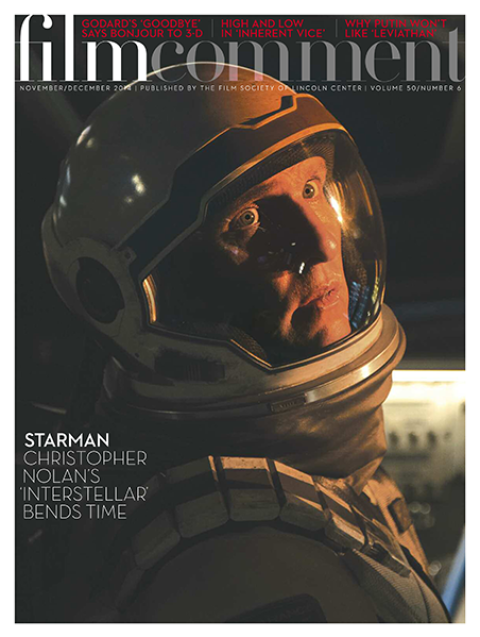Check, on all of the above. Yet somehow, not enough.
Above all else, Inherent Vice is a Paul Thomas Anderson movie, which means that it’s not here to be categorized or instantly consumed. So while anyone who has any memory of the early Seventies will feel like they’re back there again with the establishment/counterculture antagonisms and raging ego trips and spells of mellow sunlight, they will also, like the film’s hero, detect another phantom vibe.
With Inherent Vice, Anderson brings us tangibly close to the colors and moods and dream horizons of America in the days of Hawks and Doves. We breathe its air and move with its remembered gesticulations at its peculiar pace. And as we settle in with Joaquin Phoenix’s restlessly brooding Doc Sportello, we become attuned to his stoned intuition that all appearances are illusory, fragile, temporary, hence that there’s a hidden reality to be penetrated. The Tricia Nixonite Assistant DA (Reese Witherspoon) is a doper, the Jewish real-estate tycoon (Eric Roberts) embraces his inner Nazi, the gentle ex-junkie saxophone player (Owen Wilson) is an indentured COINTELPRO operative, the Black Guerilla Family sees eye to eye with the Aryan Brotherhood, the diaphanous flower girl (Katherine Waterston) heeds the call of subjugation, and the hard-ass cop (Josh Brolin) aches for transcendence. And the Pacific rolls on for all eternity. “Under the paving stones, the beach,” wrote the students across the walls of Paris during May ’68. The words are fittingly cited at the tail end of Inherent Vice’s credit roll.

Of course, it’s Pynchon—the feeling of ceaseless change, the Classic Comics tour through historical, political, and cultural arcana, the musical ear, the longing. But it’s Pynchon filtered through Anderson, who refines the author’s rapturous catalogs down to precious salient details, and who has his own musical sense of the material. Think of Inherent Vice as a carefully patterned series of rich and complex decaying chords, counterpointed and ornamented by DP Robert Elswit, production designer David Crank, and a parade of sharp actors possessed of vivid and unpredictable presences. In scene after scene, we settle in with Doc and another character or array of characters, apparently getting to the bottom of something only to find sense itself gently giving way. Dope-fueled interrogations, inspirations, lyrical flights, reveries, and jags gradually bend, lose whatever foundations they had, and dissolve into paranoiac terror or mute incomprehension or dumbstruck awe, ending sometimes with a scream and sometimes with a whisper. Perfect for a movie whose title is the legal definition of entropy.
Unlike The Big Lebowski, The Long Goodbye, or The Big Sleep, Inherent Vice has less of an actual plot than the outlines of one fashioned in the mind of its hero, incidentally a PI and former skip tracer but above all a guy who wants to make sure his old girlfriend is safe. The “conspiracy” is not specific, but rather a vast and ominous aura called Capital, momentarily embodied by Martin Donovan’s Crocker Fenway in his contemptuous speech to Doc: “People like you lose all claim to respect the first time they pay anybody rent.”
It’s the mesmerizing moment-by-moment sensory power of this funny yet piercingly sad movie that resonates on the deepest level, the long unfolding takes—Doc and Wilson’s Coy Harlingen on the fogbound pier at San Pedro, the shattering reunion with Waterston’s Shasta—that soak up light, atmosphere, and behavioral beauty and accumulate a tremendous poignancy as they go. It’s the poignancy of just being—and then more being. Cocteau called it “death at work.” It also goes by another name: cinema.








